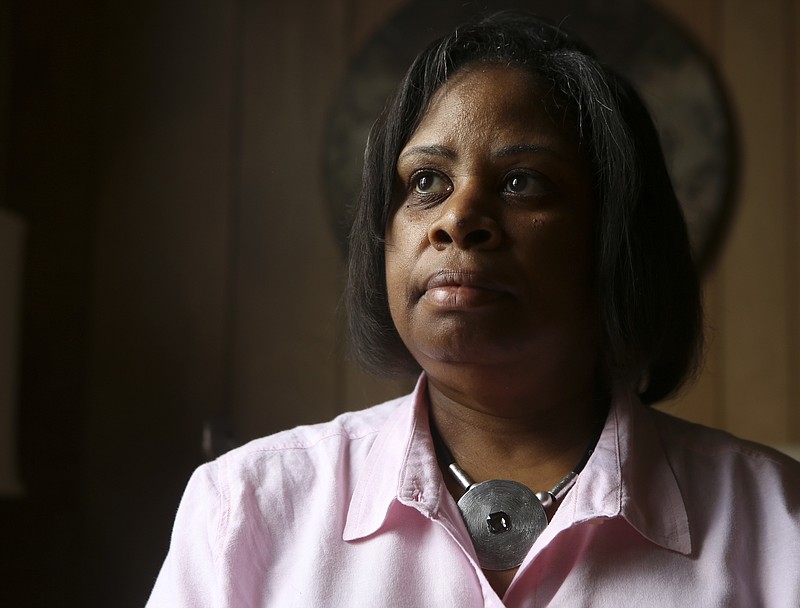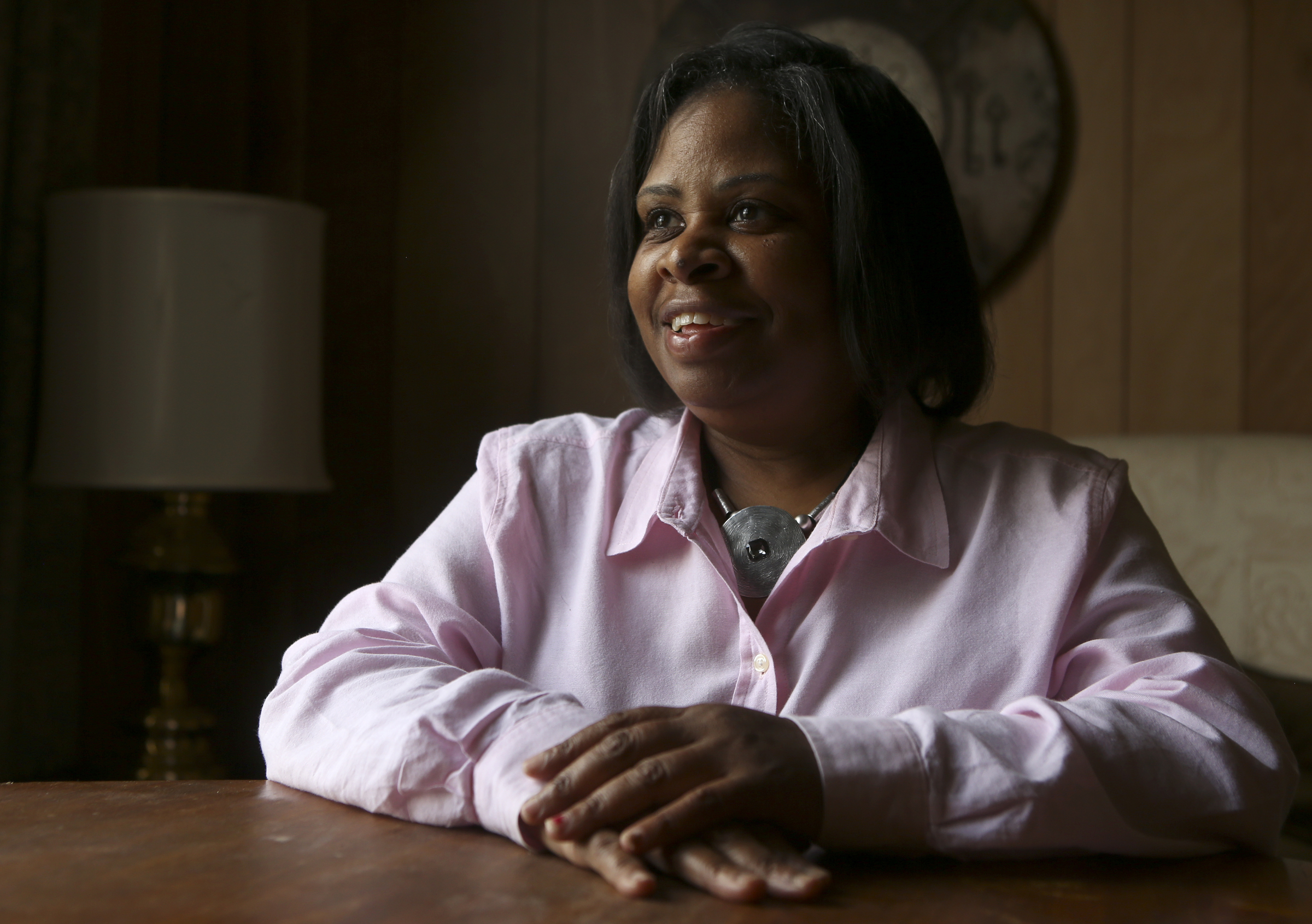If you go
› What: Hope for The Springs.› When: 5:30 p.m. Thursday.› Where: Barking Legs Theatre, 1307 Dodds Ave.› Tickets: $25.› Phone: 423-322-1449.
Lisa Garrett Tumlin is a 52-year-old wife and mother who works full time as a telephone operator at Memorial Hospital and part time for a local nonprofit. Earlier this year, she added another item to her list of responsibilities by opening a short-term shelter for homeless people who have HIV/AIDS.
It's known as The Springs, a three-bedroom, fully furnished, hardwood-floor haven in Highland Park. It's transitional housing equipped with people like Tumlin who point residents to employment, housing and other resources they need to get on their feet.
"You come here, you get yourself together, and you move on," says Tumlin.
For the past six months, she has used private and corporate donations and volunteers to operate the home. Funding with local donations, without using federal grants, allows her to help people with felony records and those with drug addictions, clients she'll take on if they're willing to change.
The only requirement to enter the home is that residents must be HIV-positive, says Tumlin, who previously worked as a phlebotomist for Chattanooga CARES, the regional HIV/AIDS resource agency.
Tumlin wants to continue operating the home without the restrictions that come with federal funds, which would force her to turn away clients with felony records. She is hoping to bring in $30,000 Thursday evening at a Hope for The Springs fundraiser at Barking Legs Theater. Tickets to the event, which includes a silent auction, cash bar and hors d'oeuvres, are $25.
Ronald Crowder, founder and CEO of Street Works Inc., a Nashville-based HIV/AIDS service organization, will be the speaker.
All money goes toward maintaining the home. No money is used for salaries, Tumlin says.
John Pogue, president of Southern Country Chattanooga, invited Tumlin to address his board members after she asked for their help. His nonprofit organization, which provides support to people with HIV/AIDS, has contributed more than $2,000 toward the house since it opened in January.
"It's to help her pay the rent on the house and get things going," says Pogue.
Dr. Ardyce Ridolfo, a geriatric nurse practitioner with In Good Health and a board member of The Springs, says there has been a need for the house for decades.
"More men would be homeless without it," she says.
HIV, or human immunodeficiency virus, is an infection spread primarily by unprotected sex, contaminated blood transfusions, hypodermic needles and from mother to child during pregnancy, delivery or breastfeeding. The virus weakens a person's immune system by destroying cells that fight disease and infection. Late stages of infection are referred to as AIDS, acquired immune deficiency syndrome. No cure exists, but proper medical care can control symptoms.
Hamilton County ranks third among Tennessee counties for the number of residents infected with HIV. According to Tennessee County Health Rankings and Roadmaps estimates, about 960 people in Hamilton County are infected with HIV or AIDS. Hamilton trails Shelby County (Memphis) with 6,422 HIV-infected residents, and Davidson County (Nashville) with 3,926. Knox County (Knoxville) is fourth with 897 people, according to the website countyhealthrankings.org.
Operating the house has been a labor of love for Tumlin and every volunteer who has helped since the house opened. Neither she nor anyone else receives compensation. Tumlin says she's willing to continue juggling her other two jobs while volunteering at the home, but eventually she wants to operate The Springs as her full-time occupation.
An HIV-positive resident regularly volunteers to maintain the yard, and each resident is responsible for cleaning up after him or herself.
Board members also help out by stopping by the house to check on residents.
Tumlin has had three clients in her first six months. She helped all of them get permanent homes and expects to get another three residents this summer. Each resident has his or her own bedroom.
The house is available to men and women.
Tumlin initially envisioned a house for women only, but weeks went by without female clients. Sometimes, women would contact her saying they needed a place to stay but would choose to remain where they were when it was time to move in, she says.
So she filled the house with men.
Men may stay on a month-to-month basis. Women may stay up to 21 months, she says.
Tumlin talked with one homeless resident about living at The Springs for at least three months before he came.
He says he delayed coming because he thought it was too good to be true. He lived on the street from September 2016 until he moved to the house in February.
"Oh, Lord, it ain't real," he says, recalling his thoughts when he first came there to live. "I kept wondering what's the catch. What's behind Door No. 2. Then she told me, 'There's no catch. I've got your back.'"
Contact Yolanda Putman at yputman@timesfreepress.com or 423-757-6431.

